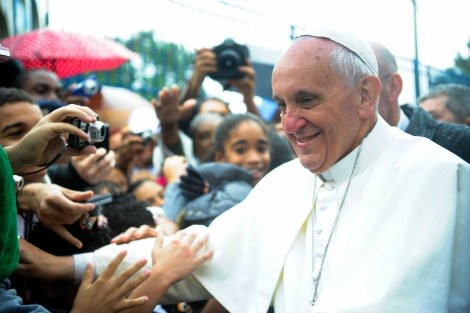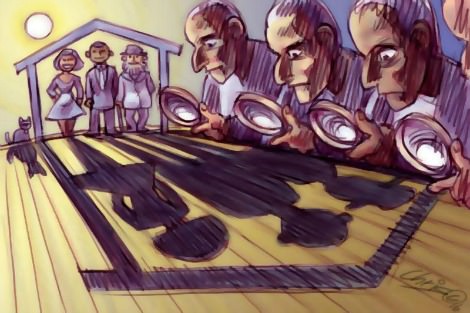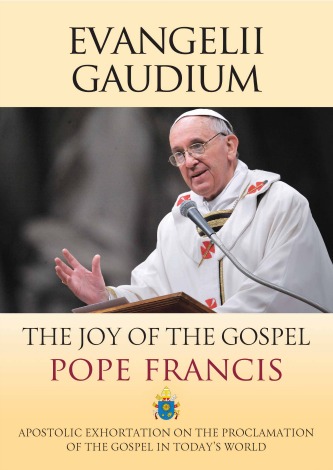Keywords: Public Interest
-

AUSTRALIA
- Binoy Kampmark
- 18 October 2016
2 Comments
The late Professor Desmond Ball of the Australian National University's Strategic and Defence Studies Centre came as close as any on being a public intellectual on nuclear strategy. While some of his counterparts in the US felt that using nuclear weapons was feasible and sound, Ball issued his pieces with mighty caveats. 'Controlling escalation', Ball ventured, 'requires both adversaries to exercise restraint, and current US policy is to offer a ... mixture of self-interest and coercion.'
READ MORE 
-

RELIGION
- Andrew Hamilton
- 08 September 2016
7 Comments
Popes are politically significant because they lead a large international church that is present in many nations. The teaching, interests and opinions of popes affect the way bishops and priests act, and so influence Catholic attitudes. More recently, popes have also become celebrities. Their influence on public opinion, in wider society and in the Church, is increasingly personal. As a result the way individual popes understand and express their faith will shape the possibilities for their political influence.
READ MORE 
-

AUSTRALIA
- Kate Galloway
- 01 August 2016
18 Comments
Government wishes to capitalise on our data using new data mining technologies. The ABS uses the language of efficiency and public interest in justifying the changes. It even implies that the new online census is environmentally friendly. It may well be that collecting and retaining our names along with our personal information is efficient, but that does not address the foundation question of whether we as citizens retain the privacy that constitutes us as members of a liberal democratic society.
READ MORE 
-

RELIGION
- Andrew Hamilton
- 24 March 2016
24 Comments
To many the challenge to endurance comes from a public world in which small gains are overtaken by huge losses. Why bother about people who seek protection from persecution or about our natural environment when the small initiatives we take are overrun by a flood tide of brutality and cynicism? What hope of building harmony in society when the Paris bombings are followed by those of Brussels? This challenge is universal, so the Christian celebration of Easter is of wider interest.
READ MORE 
-

RELIGION
- Frank Brennan
- 03 December 2015
The consideration of medico-legal problems in the public square of a pluralistic democratic society keeping pace with profound technological change is often marked by simplistic assertions, precluding considerations of comprehensive world views, whether religious or philosophical. It is now commonplace for doctors to be told to leave their consciences at the door, as their patients are consumers and they are suppliers and of course the market decides. Debates about law and policy are often resolved with simplistic assertions about individual rights and autonomy, with little consideration for the public interest, the common good, and the doctor-patient relationship. Even conscience is said to be a matter for contracting out. This evening I ask whether there are more compelling ways to resolve medico-legal dilemmas, while conceding a limited role for law in determining the range of acceptable answers.
READ MORE
-

AUSTRALIA
- Samuel Tyrer
- 08 July 2015
11 Comments
Private property rights are one of the few rights expressly protected under the Australian Constitution, but broader societal interests must be taken into consideration. Compulsory acquisition of land for the greater public good has always been a fact of life for property owners. France is currently enacting laws to force supermarkets to give their unsold consumable food 'property' to charities.
READ MORE 
-

EUREKA STREET TV
- Peter Kirkwood
- 15 April 2015
3 Comments
Last week corporate heavyweights including Google, Apple and Microsoft were grilled about the practice of moving profits from Australia to lower tax jurisdictions. Rev Elenie Poulos, director of UnitingJustice, speaks about the public interest and social good as defined by neo-liberals, and how this is opposed to the Christian notion of the common good.
READ MORE 
-

- Elenie Poulos
- 02 April 2015
4 Comments
Humans have always pursued wealth and the power it affords, but only relatively recently has the world itself become organised around the service of that wealth. The systems and structures which define the way our world works are financial, geared to the making of profit. They are global and buoyed by governments whose domestic and foreign policies ensure their support. ‘Social good’ and the ‘common good’ are assumed to be economic neoliberalism, and what’s in the ‘public interest’ is whatever advances the neoliberal economic agenda.
READ MORE
-

INTERNATIONAL
- Andrew Hamilton
- 12 December 2013
4 Comments
The Declaration of Human Rights exists as a standard by which we can judge our national life and priorities. By these criteria Australian public life displays grounds for concern. In the case of asylum seekers, prisoners and bikies, governments spend more effort on seeking to evade the claims of human rights than to uphold them. In the 'nonsense on stilts' stakes the unfettered appeal to national interest walks far taller than advocacy of human rights.
READ MORE
-

RELIGION
- Andrew Hamilton
- 05 December 2013
24 Comments
To my knowledge this is the first church document that refers to 'sourpusses'. It must be the first lengthy papal document for some time, too, that refers to the Magisterium only twice in passing. Nor does Pope Francis refer explicitly to clerical sexual abuse. Francis is not interested in radical institutional or doctrinal change but wants to help a dysfunctional church work better at compassionately communicating God's love.
READ MORE
-

AUSTRALIA
- Tony Kevin
- 20 September 2013
6 Comments
Under the US revolving door model, top public service jobs are held by staff who are openly politically affiliated. When government changes, they go back to their jobs as special interest Washington lobbyists. Australians have made clear we don't like that system. It is open to corruption, and when our governments flirt with it, they usually come to regret it.
READ MORE 
-

AUSTRALIA
- Fatima Measham
- 21 May 2013
10 Comments
How do we make sense of the perception that the economy is being mishandled when Australia is performing far better than other western countries? Or the fact that Labor faces a grim fate despite massive support for its major policies? The incongruence between public and political interest reveals democracy as an unfinished project.
READ MORE 